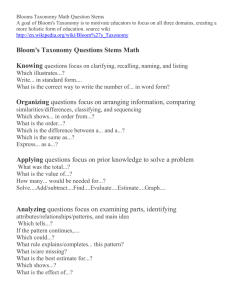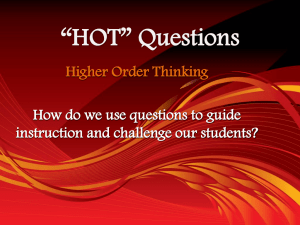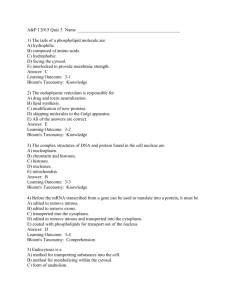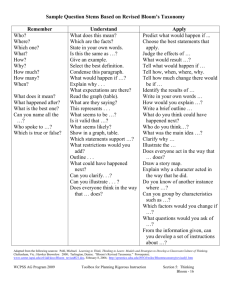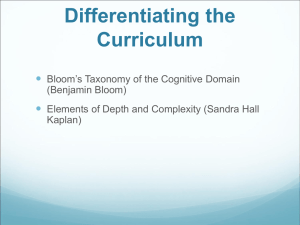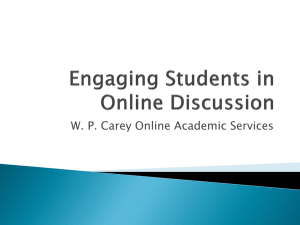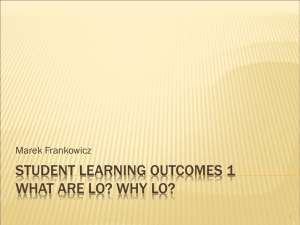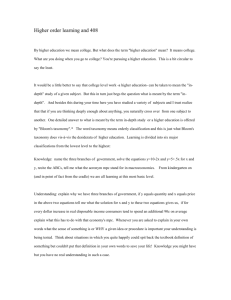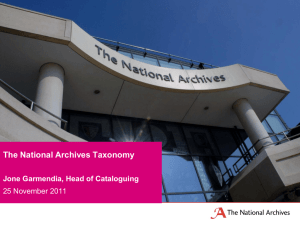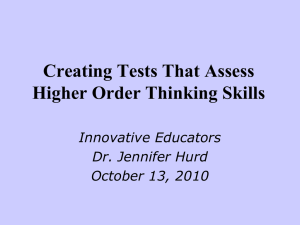Social Studies Presentation Day 3rd grade
advertisement
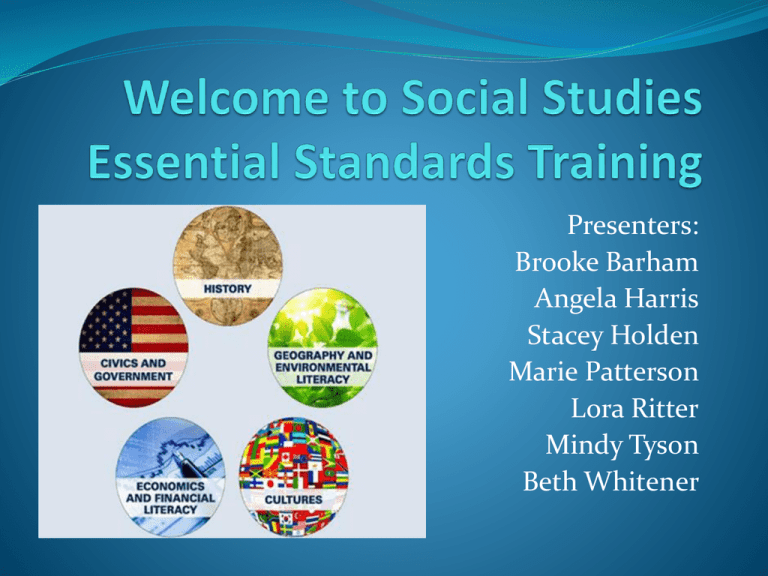
Presenters: Brooke Barham Angela Harris Stacey Holden Marie Patterson Lora Ritter Mindy Tyson Beth Whitener Agenda Rationale for Social Studies Instruction Overview of Structural Changes Integration of Information and Technology Skills Unpacking the Standards Vertical Progression of Concepts Revised Blooms Taxonomy PLC Norms Be Respectful Be Responsible Be a Learner Cell phones off Take bathroom breaks as needed Third Grade Third Grade Third Grade Third Grade Third Grade STRUCTURAL CHANGES FROM THE ORIGINAL BLOOM'S TAXONOMY FRAMEWORKTOTHE REVISED BLOOM'S TAXONOMY FRAMEWORK WIC ACRE Accountability and Curriculum Reform Effort in Response to A Framework For Change The Five Conceptual Strands Time, Continuity & Change Individuals , Groups & Institutions Science, Technology & Society People, Places & Environments Civic Ideals & Practices Culture Power, Authority & Governance Production, Distribution & Consumption Individual Development & Identity Global Connections 7/10/2011 • page 15 The Paradigm Shift From Teaching To Teaching & & Learning Topically Learning Conceptually http://www.supermanhomepage.com/multimedia/WallpaperImages2/phonebooth.jpg 7/10/2011 • page 17 The Structure Of Knowledge PRINCIPLES & GENERALIZATIONS CONCEPT CONCEPT TOPIC F A C T F A C T F A C T F A C T F A C T F A C T F A C T 7/10/2011 • page 25 Concepts Timeless Universal Transferable Abstract and broad (to various degrees) Examples share common attributes Represented by 1-2 words 7/10/2011 • page 25 Concept vs. Topic? • Find the bag of words on your table • Sort the words into 2 categories. Major Changes in the NC SS Essential Standards Use of Revised Bloom’s Taxonomy Use of Strands Conceptual focus 7 Effective Social Studies Instruction • What does the teacher do well? • What could he have done better? http://cooperativelearning.n uvvo.com/lesson/9592seinfeld-teaches-history Unpacking the Essential Standards: The unpacking document... Identifies what a student must understand (Conceptual Knowledge) Concepts and Generalizations Identifies what a student must know (Factual Knowledge) Critical Content Identifies what a student must be able to do (Procedural Knowledge) Skills Not every clarifying objective will have this. 8/4/2011 • page 22 Strands and Coding H History, G Geography and Environmental Literacy, E Economics and Financial Literacy, – – – C&G Civics and Government, and C Culture – – Geography and Environmental Literacy Conceptual Knowledge Factual Knowledge Procedural Knowledge 8/4/2011 • page 22 Jigsaw by Strand History Geography and Environmental Literacy Economics and Financial Literacy Civics and Government Cultures Gallery Walk – 15 minute Break As you read each poster, use colored dots to denote the following: Blue/Green Dot –Great Idea! Red/Yellow Dot – I need this too! Vertical Progression Highlight new concepts as they are introduced across the grades. What are the implications if one grade level neglects this strand? Reflect on your own teaching. How will you balance your teaching of each strand in the coming year? Vertical Progression What are the implications if one grade level neglects this strand? Reflect on your own teaching. How will you balance your teaching of each strand in the coming year? STRUCTURAL CHANGES FROM THE ORIGINAL BLOOM'S TAXONOMY FRAMEWORKTOTHE REVISED BLOOM'S TAXONOMY FRAMEWORK WIC ACRE Accountability and Curriculum Reform Effort in Response to A Framework For Change 42 Essential Standard 3.H.1.2 Analyze the impact of contributions made by diverse historical figures in local communities and regions over time . 44 Essential Standard 3.G.1.1 Find absolute and relative locations of places within the local community and region . 46 Essential Standard 3.E.2.2 Give examples of entrepreneurship in various regions of our state 48 Essential Standard 3.C&G.1.2 Describe the structure of local government and how it functions to serve citizens 50 Essential Standard 3.C.1.2 Exemplify how various groups show artistic expression within the local and regional communities 52 Integrating Information and Technology Skills
